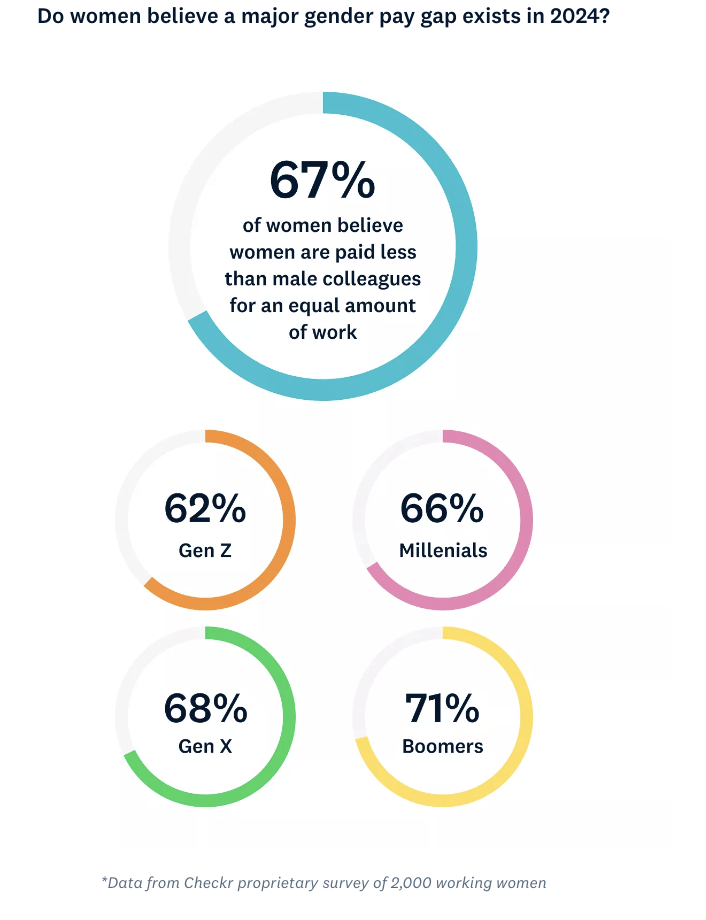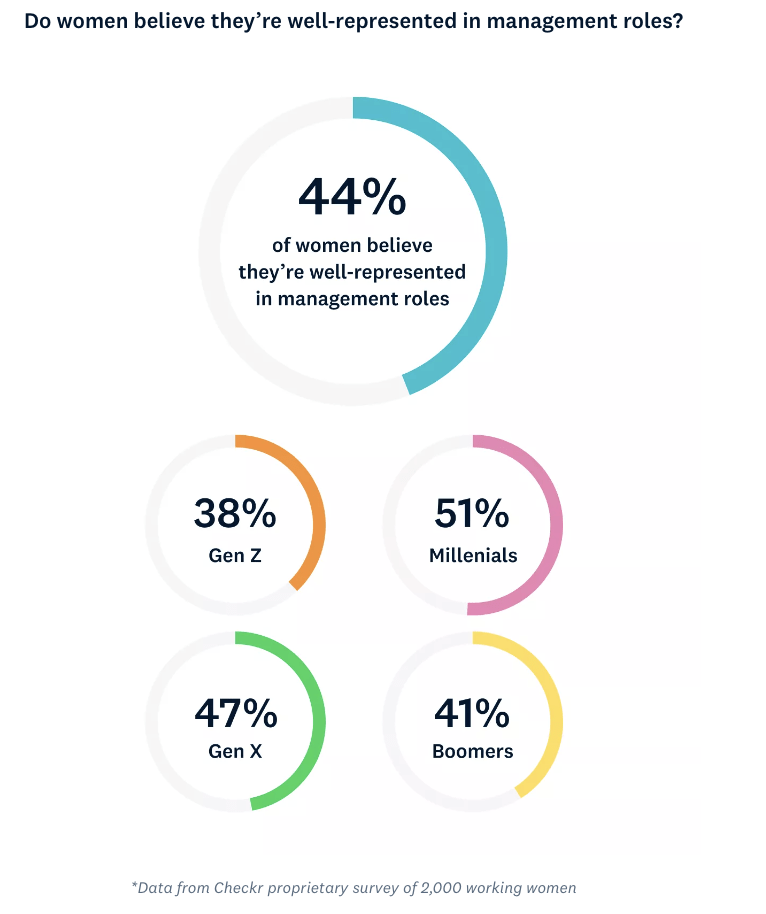
Despite the growing awareness of gender discrimination issues, a concerning majority of women, around 82%, fear negative repercussions for reporting bias or discrimination, highlighting a pervasive culture of silence and fear surrounding gender-related issues.
Additionally, 80% of women believe that there is lack of respect towards women managers, further underscoring the entrenched biases prevalent in organisational structures, survey shows.
Checkr surveyed 2,000 employed women—Boomers, Gen Xers, Millennials, and Gen Zers—to shed light on women perceptions on the current state of gender equality in the workplace to help employers understand concerns and overall sentiment surrounding gender inequalities at work.
“Sixty-seven percent of women believe they’re paid less than their male colleagues — this is not only a statistic but also a reminder of workplace inequalities in our workplaces. In some organizations, women continue to face unjust wage differences, hindering performance development and professional relationships. We hope the findings of this report will urge businesses to foster inclusive environments and implement equal practices to unlock the full potential of their employees, ”commented Kristen Faris, SVP, Customer Success, Solutions & Partnerships.
Even Though the world has stepped into 2024, women earn just 84 cents compared to every dollar earned by men, and are systematically underpaid, according to statistics from the American Association of University Women (AAUW). At this rate, the AAUW believes that the gender pay gap will not close until 2088.

Beyond salary discrepancies, the survey exposes deeper-rooted biases ingrained in workplace culture. Only 11% of women strongly believe that their male colleagues exhibit equal respect for women as they do for men.
Nonetheless, the burden of family responsibilities further exacerbates gender disparities in the workplace. A staggering 75% of women believe that mothers are perceived as less dedicated and competent compared to male colleagues.
The survey findings show that only a fraction of women across different generations express confidence in women’s representation in management roles. Particularly alarming is the lack of confidence among Gen Z women.
“In an era where representation is celebrated, it is concerning that Gen Z women feel a lack of confidence in the workplace — only 38% of women believe they are well-represented in management roles and only half (54%) feel that they have equal opportunities for management positions. The sentiments held by the younger generations highlight how the places where we spend a chunk of our day — work — need to address how the environment is affecting young women in the workforce. There’s a confidence gap where there shouldn’t be,” added Faris.

The prevalence of gender bias extends to promotional opportunities as well, with 69% of women expressing agreement or uncertainty regarding the likelihood of management favoring male colleagues over equally qualified women.
The survey findings underscore the urgent need for comprehensive reforms to combat gender disparities in the workplace effectively. For business leaders, this data serves as a valuable resource for devising strategies to promote gender equality and foster a more inclusive workplace culture.
By understanding the motivations behind women’s decisions to exit the workforce, employers can implement targeted initiatives aimed at addressing these concerns and creating an environment conducive to women’s success and fulfillment, explains Checkr.